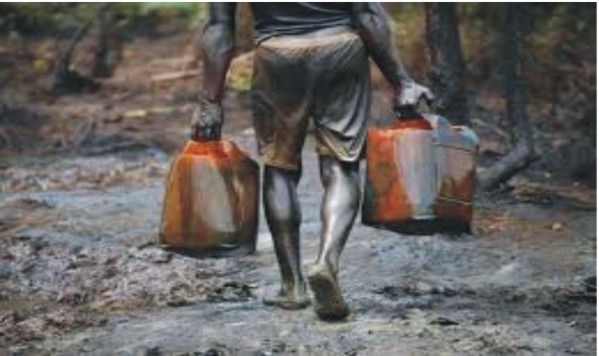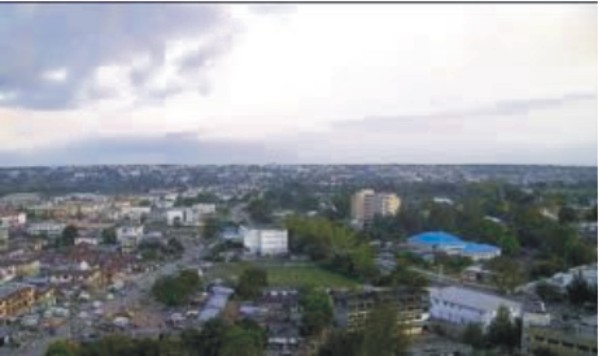By Nnamdi Nwigwe 08037024609
Those who claim to represent us in the National Assembly occasionally give the impression that they are in need of fresh ideas on what, or how, to contribute to the solutions of our nation’s plethora of problems.
Take for instance, the recent assertions of the House of Representatives over the dead and buried issue of oil theft in the oil producing delta region of the country.
On Tuesday, July 2, 2013, following a motion by a member from Kano, the House resolved to invite heads of all security agencies to a closed-door session “to find out those responsible for the theft.”
While raising his motion, the Member of Parliament had alleged that as many as 300,000 barrels of Nigeria’s black gold were being stolen “every day.”
This, according to the law maker, translates to a “loss of one billion US Dollars per month and $12bn per annum.”
Media reports said the concerned legislators, even ahead of the proposed meeting with the security agencies, put the blame on them, saying they “owed Nigerians explanations on the increasing cases of oil theft.”
Considering the very urgent issues of sorting out the stalemate over the 2013 budget between the Presidency and the National Assembly, as well as the savage destruction of lives and property by criminal militants in the North-East inspite of the state of emergency in the area, it amounts to “Nero fiddling while Rome burns,” for our MP’s to talk of oil theft and the need to find out who the thieves are.
Who, in this country, does not know that oil theft is an uncontrollable offshoot of oil exploration, exploitation and production?
Foreign companies which have the technical and managerial expertise to exploit and produce oil, are invited by our government to produce our oil for us.
Part of the contractual agreement with them could include payment in kind.
Shipment of our oil to foreign markets is handled by foreign oil tankers. They tell us how much oil we produce and how much of it is shipped out. As we are technically ill-equipped to correctly monitor the processes, from production to shipment, we cannot but merely accept what we are told by the foreign business men.
What they steal from us is the difference between what they actually produce and export and what they declare to our authorities.
Secondly, localized “leakages” along the coastline, through broken pipe-lines or punctured spots by those who siphon oil into barges and underground tanks translate to stealing.
Who and who own those barges and secret storage tanks?
To demonstrate his total innocence of the goings-on in the complex oil industry, the legislator from the North, in his motion, demanded the installation of an “automated metering system for the purpose of verifying actual oil production from oil wells, flow heads and export terminals.”
Legislators from the oil-producing delta region must have had a good laugh as their colleague from Kano battled to sound knowledgeable about the oil business.
Our worried law maker who should be talking about the revival of the groundnut pyramids and the textile industry of Kano, should be told that there is no surfeit of meters and metering at the oil wells, flow-stations and of course, at the ports where oil is pumped into the tankers.
Metering is not the problem. Oil theft is what the complaint is all about.
Who owns the fleet of fuel tankers that daily drive across the country towards Niger, Chad and their environs, escorted by uniformed men?
Is their oil cargo a genuine official export or stolen freight?
If our law makers have no idea as to the true thieves of our national major resource both crude and refined are, then they need a series of retreats to be tutored.
Resource personnel for such workshops and seminars should include tanker drivers who ply desert terrains, Youth Corps Service men and women who have done their primary assignment in the states that are contiguous with the neighbouring countries.
Repentant and settled militants from the Niger Delta region should also be part of any genuine retreat of legislators who want to learn the truth about oil theft in the country.
But let’s hear an anecdotal story told on the floor of the Nigerian House of Representatives by a man who should know a little bit more about oil.
Media reports said that a member from Rivers State representing a Constituency where oil is produced and stored for export, said “A retired military officer once told me that a military officer from the rank of Colonel upwards, who does not become a billionaire after serving in the Niger Delta, must have his head examined. I have no reason to doubt him…”
It was this story teller who suggested a “closed-door meeting” between the legislators and the top brass of our security agencies to “discuss oil theft,” in contrast to the Kano man’s brilliant suggestion that the military Joint Task Force in-charge of security in the coastal states be overhauled as well as deploying “additional men” in the area.
How one wished that we started with the “oil tanker caravan” up North in our serious effort to stanch the flow of our precious oil to the wrong economic destinations.
The loot of the pirate is sold on land, not at sea.
Our members of parliament should please tackle more urgent national issues staring them in the face rather than engage in what journalists would, in those days, refer to as “Afghanistan” preoccupation with mundane issues.
Oil theft would stop the moment the last drop of oil evaporates.











